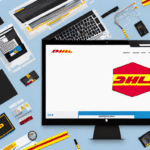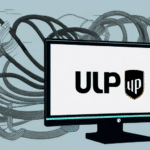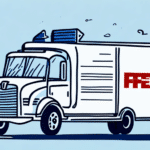ShipRush vs ShipStation: Comprehensive Comparison for Your Business
Shipping is an integral part of any business, especially with the surge in online shopping. To meet increasing shipping demands, businesses require reliable and efficient shipping software. ShipRush and ShipStation are two prominent shipping solutions that have gained significant popularity in recent years. This article provides an in-depth comparison of ShipRush and ShipStation to help you make an informed decision on which software best suits your business needs.
Understanding Shipping Software
Shipping software is designed to help businesses manage their shipping operations efficiently. It automates various tasks such as printing shipping labels, tracking shipments, and managing orders. By leveraging shipping software, businesses can save time and money, reduce errors, and enhance customer satisfaction.
Types of Shipping Software
- Small Business Solutions: Tailored for startups and small enterprises with basic shipping needs.
- Enterprise Solutions: Designed for large organizations requiring advanced features and scalability.
- Cloud-Based: Accessible from anywhere with internet connectivity, offering flexibility and ease of integration.
- On-Premises: Installed locally on a company's servers, providing greater control over data and customization.
Integration Capabilities
Shipping software often integrates with other business systems such as e-commerce platforms, inventory management, and accounting software. This seamless integration streamlines operations, ensuring that when an order is placed on an e-commerce platform, the shipping software can automatically generate a shipping label and update inventory levels.
Overview of ShipRush
ShipRush is a shipping software solution designed to simplify the shipping process for businesses by automating tasks like printing shipping labels, tracking shipments, and managing orders. It integrates seamlessly with popular e-commerce platforms such as Amazon, eBay, and Shopify. Key features of ShipRush include:
- Batch Processing
- Rate Shopping
- Address Validation
- Integration with Popular E-commerce Platforms
- Real-Time Tracking
ShipRush also allows users to customize shipping rules based on factors like weight, destination, or shipping method, providing flexibility to tailor the shipping process to specific business needs. Additionally, it offers real-time shipping rates and delivery estimates, enhancing transparency for both businesses and their customers.
Overview of ShipStation
ShipStation is an all-in-one shipping software platform that helps businesses manage their shipping needs efficiently. It offers a comprehensive suite of features, including:
- Order Tagging
- Batch Processing
- Custom Branding
- Advanced Reporting
- Integration with Over 40 E-commerce Platforms
ShipStation stands out with its extensive carrier integrations, including USPS, FedEx, UPS, DHL, and more, allowing businesses to compare rates and delivery times to choose the best option. It also provides real-time shipping rates and discounts, helping businesses reduce shipping costs.
Key Features Comparison
ShipRush Key Features
- Batch Processing: Efficiently handle multiple orders simultaneously.
- Rate Shopping: Compare shipping rates across different carriers.
- Address Validation: Ensure accurate shipping addresses to minimize delivery issues.
- Real-Time Tracking: Monitor shipments in real-time for better visibility.
- Customizable Shipping Rules: Tailor shipping processes based on specific criteria.
ShipStation Key Features
- Order Tagging: Organize and categorize orders for streamlined processing.
- Custom Branding: Personalize shipping labels and packing slips to reinforce brand identity.
- Advanced Reporting: Gain insights into shipping performance and costs.
- Extensive Integrations: Connect with over 40 e-commerce platforms for seamless operations.
- Automation Rules: Set up automated workflows to enhance efficiency.
Pricing Comparison
Both ShipRush and ShipStation offer tiered pricing plans to cater to different business sizes and needs:
ShipRush Pricing Plans
- Professional: Starting at $29.95/month
- Enterprise: Starting at $99.95/month
ShipStation Pricing Plans
- Starter: Starting at $9/month
- Professional: Starting at $29/month
- Premium: Starting at $99/month
Both platforms offer discounts for annual subscriptions—ShipRush provides a 10% discount, while ShipStation offers a 15% discount. Additionally, both ShipRush and ShipStation include a free trial period, allowing businesses to test their services before committing to a paid plan.
User-Friendliness and Support
ShipRush User Experience
ShipRush features a straightforward and intuitive interface, making it easy for businesses to navigate and manage their shipping operations. Customer support is available via phone and email during business hours, ensuring assistance when needed.
ShipStation User Experience
ShipStation boasts a highly customizable and user-friendly interface, offering extensive integration options with over 100 marketplaces and shopping carts. It provides 24/7 customer support through phone, email, and live chat, which is crucial for businesses requiring immediate assistance.
Integration Capabilities
Integration is a critical factor when choosing shipping software:
ShipRush Integrations
- Amazon
- eBay
- Shopify
- WooCommerce
ShipStation Integrations
- Over 40 E-commerce Platforms Including Magento, BigCommerce, and more.
- Numerous Marketplaces such as Amazon, eBay, and Etsy.
- Multiple Carriers including USPS, FedEx, UPS, DHL, and others.
While ShipRush offers robust integrations with major platforms like Amazon, eBay, and Shopify, ShipStation provides even broader integration options, supporting over 40 e-commerce platforms and numerous carriers. This extensive connectivity makes ShipStation a versatile choice for businesses with diverse needs.
Customer Support Comparison
ShipRush Customer Support
ShipRush offers customer support through phone and email during standard business hours. While reliable, support availability is limited compared to some competitors.
ShipStation Customer Support
ShipStation provides 24/7 customer support via phone, email, and live chat. Additionally, it maintains a comprehensive knowledge base and community forums, enabling users to find answers and connect with other users for support.
Pros and Cons
Pros of Using ShipRush
- Efficient Shipment Processing: Streamlines handling of multiple orders.
- Integration with Major Platforms: Supports key e-commerce platforms like Amazon, eBay, and Shopify.
- Reliable Customer Support: Offers dependable support through phone and email.
Cons of Using ShipRush
- Limited Integration Options: Fewer integrations compared to ShipStation.
- Higher Pricing: More expensive pricing plans for higher tiers.
Pros of Using ShipStation
- Extensive Integrations: Connects with over 40 e-commerce platforms and multiple carriers.
- Custom Branding: Enhance brand identity with personalized shipping labels and packing slips.
- Advanced Reporting: Gain deep insights into shipping performance and costs.
Cons of Using ShipStation
- Complexity for Small Businesses: May offer more features than necessary for smaller operations.
- Feature Overlap: Some advanced features might not be essential for all businesses.
Best Shipping Software for Different Business Sizes
Small Businesses
ShipRush is often the preferred choice for small businesses due to its affordable pricing plans and ease of use. It offers essential features that allow small businesses to efficiently manage their shipping processes without overwhelming complexity.
Additionally, Shippo is another excellent option for small businesses. While slightly more expensive than ShipRush, Shippo provides advanced features like batch label printing and custom branding, along with a user-friendly interface and robust customer support.
Large Businesses
ShipStation is better suited for large businesses that require advanced features and extensive integrations. Its ability to handle high volumes of orders, customizable shipping rules, and comprehensive reporting tools make it ideal for large enterprises looking to optimize their shipping operations.
ShipStation’s extensive carrier integrations and automation capabilities also provide large businesses with the flexibility and efficiency needed to manage complex shipping requirements effectively.
Conclusion: Choosing the Right Shipping Software
Selecting the right shipping software depends on your business's specific needs, size, and budget. Both ShipRush and ShipStation offer reliable and efficient shipping solutions, each with its unique strengths:
- Choose ShipRush if: You are a small to medium-sized business looking for affordable pricing and straightforward features.
- Choose ShipStation if: You are a large business that requires advanced features, extensive integrations, and comprehensive support.
Additionally, consider other alternatives like Easyship and Ordoro, which might offer features and pricing structures better aligned with your business requirements. It's always advisable to research and compare multiple options to ensure you select the best shipping software for your business.
For further insights on optimizing your shipping processes, refer to industry reports and expert analyses from reputable sources such as Forbes, Business Insider, and Shopify Blog.




















